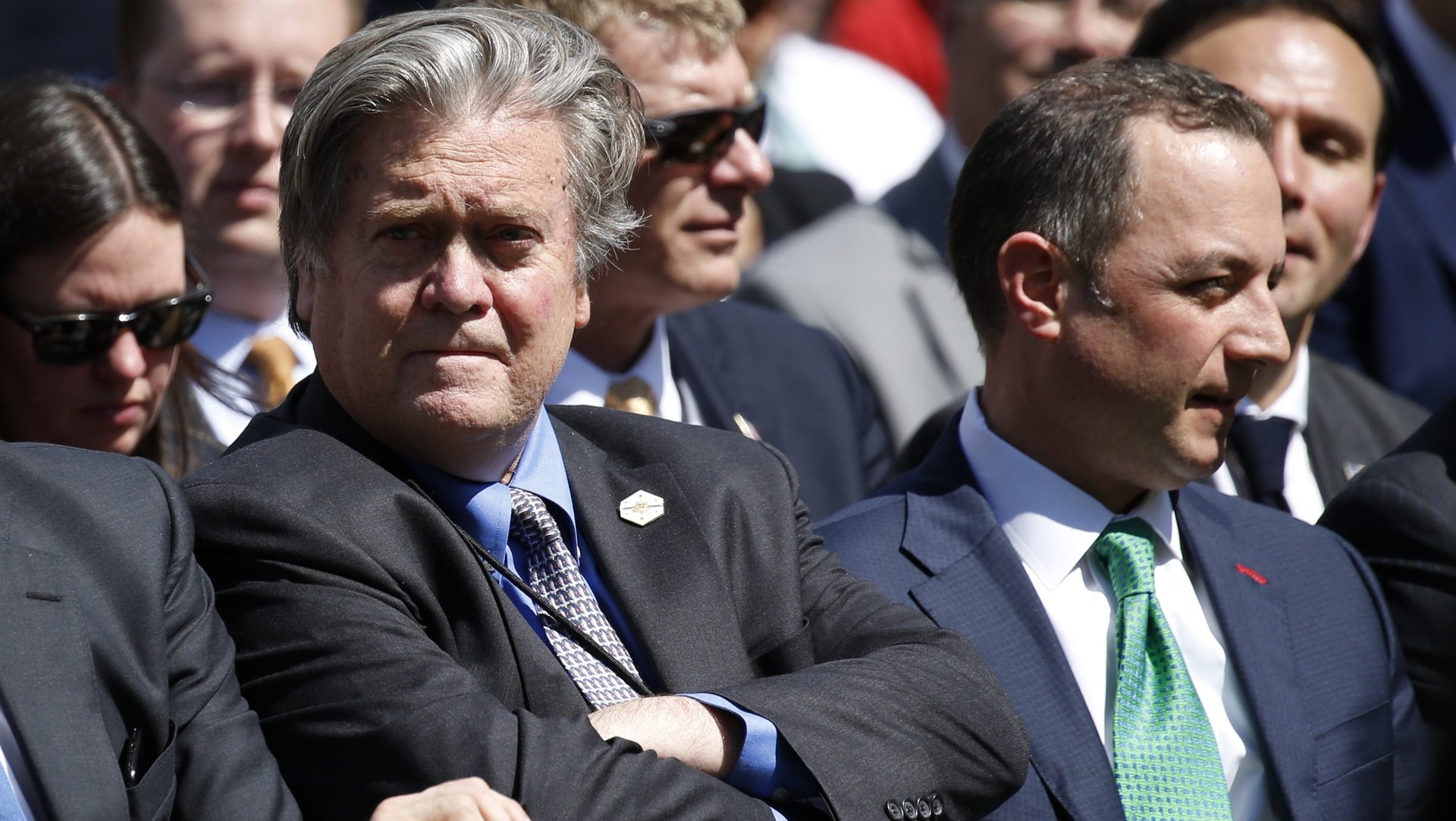Steve Bannon’s claim to have played the media with his bizarre interview is deluded
White House chief strategist Steve Bannon declared war on Gary Cohn, president Donald Trump’s economic advisor; called white nationalists “losers”; and dismissed the president’s push for military action in North Korea in a bizarre, free-wheeling interview with the liberal magazine American Prospect that was published yesterday (Aug. 16).


White House chief strategist Steve Bannon declared war on Gary Cohn, president Donald Trump’s economic advisor; called white nationalists “losers”; and dismissed the president’s push for military action in North Korea in a bizarre, free-wheeling interview with the liberal magazine American Prospect that was published yesterday (Aug. 16).
The interview immediately set Trump-watchers buzzing. What the hell is Bannon doing? Is he “daring Trump to fire him,” as a former Breitbart spokesman, Kurt Bardella, told CNN’s Brian Stelter?
Nothing of the sort, Bannon claimed, hours after the article was published—he was playing the media instead. Bannon declared the interview a success in an interview with Britain’s Daily Mail today, saying it “drew fire away from” the president because he had “changed the media narrative.”
Figuring out whether the Trump administration is “playing three-dimensional chess” by pursuing a sophisticated strategy (paywall) to manipulate the media, Congress, and foreign leaders, or is just a vortex of off-beat advisors gathered around a man who acts according to his own personal whims has consumed much of American political coverage in the first seven months of his presidency.
Trump’s statements on the Charlottesville far-right rallies is the latest suggestion that he may be driven only by his own whims. But Bannon has demonstrated a capacity for long-term thinking, including his infamous whiteboard of goals for the administration and a cohesive, if somewhat unhinged, world view. His claim to have a “strategy” here, however, left many American media experts unimpressed, including Jay Rosen, New York University’s veteran journalism professor.
His interview also didn’t change the media narrative much. Headlines about Trump today have been focused on Trump’s tweets mourning the loss of Confederate statutes, the dissolution of his business advisory councils, and the mayor of Phoenix asking Trump not to come to his city for a planned rally.

Bannon might have a more self-serving motive than protecting the president. He had called the American Prospect on Tuesday afternoon, the magazine notes, soon after Trump’s bizarre press conference in which he called neo-Nazis “fine people” but also wouldn’t say whether he had confidence in Bannon. Trump is under increasing pressure to fire Bannon, The New York Times reported this week. So perhaps Bannon genuinely believed (or wanted to) that he could “change the narrative” and get back into his boss’s good graces. Or perhaps he was indeed “daring him Trump to fire him”; as Bardella notes, if Bannon isn’t fired after so openly criticizing White House colleagues, he looks hard to dislodge.
However, Bannon’s words seem to carry little internal weight in the Trump administration. In the interview with American Prospect, he singled out Susan Thornton, the State Department’s senior person in Asia, saying he was “getting” her “out at State.” But Thornton’s job is secure, a State Department official told Quartz. “The Secretary asked Susan Thornton to lead in a very important role and he continues to rely on her to lead the State Department’s diplomacy in Asia,” he said.
Cohn, too, is not going anywhere, the White House said Thursday. “Nothing has changed. Gary is focused on his responsibilities as NEC Director and any reports to the contrary are 100% false,” an official told the press pool on background.